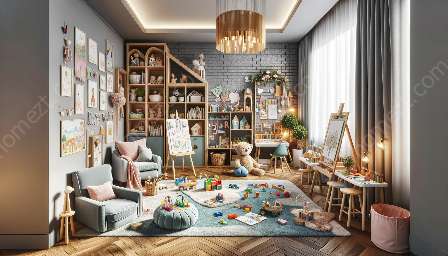Blocks are a fundamental and versatile tool that can greatly enhance playroom activities and nurture the development of children in nursery and playroom environments. From simple wooden blocks to complex building sets, the world of blocks offers endless possibilities for creativity, learning, and fun.
The Power of Blocks in Playroom Activities
Children are naturally drawn to blocks as they spark imagination and provide a hands-on experience that promotes cognitive, physical, and social development. Through playroom activities involving blocks, children learn essential skills such as problem-solving, spatial awareness, and fine motor skills, while engaging in open-ended and imaginative play.
Types of Blocks for Playroom Activities
There is a wide array of blocks available, each with its unique features that cater to different developmental stages and interests. Traditional wooden blocks are timeless classics that allow children to explore basic concepts of balance, proportion, and construction.
For a more tactile experience, foam and soft blocks provide a safe and colorful option for younger children to stack, squeeze, and build. Magnetic building sets offer an innovative twist by introducing the principles of magnetism and engineering in a playful and interactive manner.
Engaging Playroom Activities with Blocks
From building towers and bridges to creating intricate structures or engaging in collaborative group projects, the possibilities for playroom activities with blocks are endless. Encouraging children to experiment with different shapes, sizes, and textures of blocks fosters creativity and encourages them to think critically while having fun.
Integrating blocks into themed activities, such as building a cityscape or constructing a zoo, ignites children's imagination and allows them to explore various real-world scenarios in a hands-on way.
Benefits of Blocks in Nursery and Playroom Environments
Blocks not only facilitate intellectual and physical growth but also promote social interaction and communication. As children engage in collaborative block play, they learn to share, negotiate, and work together toward a common goal, laying the foundation for important social skills.
Moreover, blocks can be used as educational tools to introduce concepts such as counting, sorting, and geometry, making them an integral part of early childhood education in nursery and playroom settings.
The Endless Possibilities with Blocks
Through the exploration of blocks, children embark on a journey of discovery, innovation, and self-expression. By embracing the magic of blocks in playroom activities, nursery and playroom environments can become vibrant spaces where children can learn, create, and grow while having a blast.


